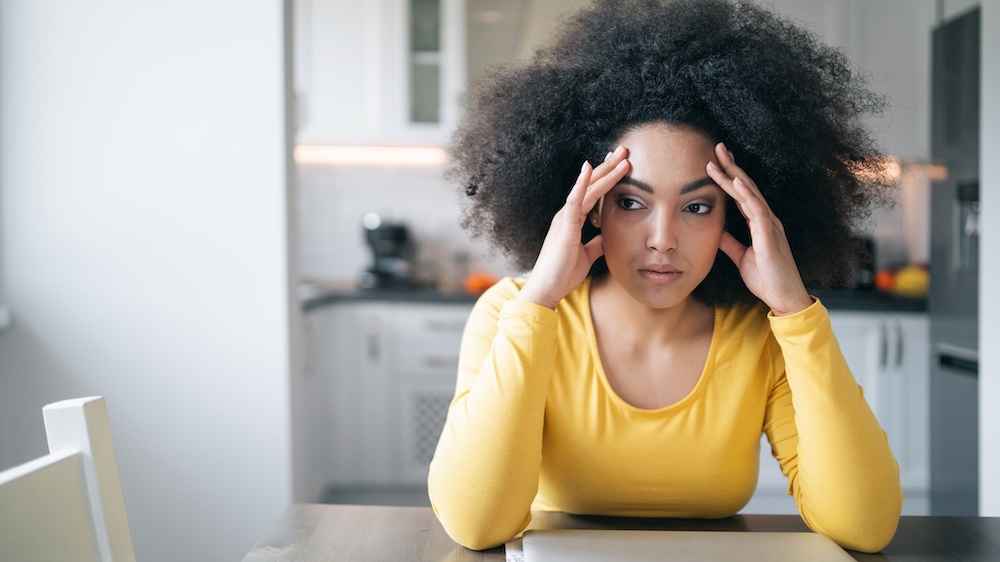If you’re interested in sharing your opinion on any cultural, political or personal topic, create an account here and check out our how-to post to learn more.
____
We can all agree that the pandemic sucks. When it first began, my sophomore year of college was cut short during the spring semester, and I had to begin remote learning and move from one side of the country back home. Of course, this was not terrible, as I had the distraction of school. But during the summer months when I had no distractions, I began to feel hopeless and lost. I knew that I couldn’t be the only one who felt this way, especially seeing that many people my age were going through similar changes and some even lost family members. This, of course, caused me to think about how the pandemic could be affecting those in my age group, 18-25 year olds.
The question I wanted an answer to was, “How does COVID-19 affect the young adult population’s mental health?” Based on my personal experience, I believed the data would show the pandemic has negative effects on the young adult’s mental health. In order to determine if I was correct, I collected data through a survey that I shared via social media and through texts sent to family and friends. The questions I asked fell under three categories: background information, comparison data and reasoning data. The questions asked in the background section were those asking about age, location, gender, race, educational background and whether or not one had been previously diagnosed with depression or received treatment for depression.
In the comparison section, the questions asked were to determine the occupational status, living arrangements, participation in activities such as exercising, talking face-to-face with people and going outside per week, use of social media per week, use of streaming services per week and how often one experienced little pleasure/interest in doing things, felt depressed or hopeless, trouble falling asleep, felt little energy/tired, overate or had poor appetite, trouble concentrating on things, thoughts of harming themselves, or feeling bad about themselves before and during the pandemic.
Overall, I was able to collect 1,275 responses from 47 states and 40 countries outside of the United States. Additionally, because I made the survey available through social media, I was able to collect a diverse set of background statistics. And of those who filled out the survey, about 37.9% were previously diagnosed with depression or received treatment for depression.
According to the results from my survey, because of the pandemic, there was a 16.3% increase in people who were not working and a 20.6% increase of those living with their parents due to the pandemic. In regards to participation in certain activities, there was an 11.9% increase of those who rarely exercise, a 22.2% increase of those who rarely talk with someone face-to-face, a 28.8% increase of people who rarely travel outside, a 17.5% increase of people who use social media for more than 18 hours in a week, and a 17.2% increase of people who use streaming services such as Netflix and Hulu for more than 18 hours in a week.
Consequently, when looking at the change in people’s emotional and mental states during the pandemic, there’s been a 21% increase in people feeling little interest or pleasure in doing things, a 15.5% increase in people feeling depressed or helpless, a 15.8% increase in people having trouble sleeping, an 11.2% increase in people feeling tired or having little energy, a 15% increase in people overeating or having poor appetite, a 13.4% increase in people having trouble concentrating on things, a 6.3% increase in people who want to harm themselves, and a 12.1% increase in people who feel bad about themselves.
In addition to this data, I reviewed the reasoning data to determine which outside factors could also influence one to feel these emotions or experience these changes. After seeing that only 32.6% of people lost a job and only 21.3% of people lost a family member or close friend during the pandemic, I determined that it was not a significant reason for why there’s a shift in the mental well-being of the young adult population. It should be noted that the cause of death for those who lost a family member/close friend was not accounted for, meaning that they could’ve passed away for a multitude of reasons, excluding COVID-19.
These results relate to my original question as it proves that due to the pandemic, young adults are beginning to have a decline in their mental well-being. The background statistics show that this is not just an issue that is only affecting a certain age group, a certain region, certain educational backgrounds or even certain races, but rather, is affecting every group in a rather similar manner. The fact that there is an increase in people experiencing symptoms of depression and are not participating in regular everyday activities, proves my hypothesis correct, as there’s less likely to be endorphins released without those activities.
Overall, I feel as though my results will help us start the conversation on the importance of mental health and what solutions we can create in order to combat this issue. Plenty of times, people ignore mental health as they associate it with mental disorders, however, stress and symptoms of depression are also effects of mental health, and if you ignore them or fail to understand them, then it can lead to a bigger issue. Furthermore, we are already dealing with a pandemic that affects our physical well-being, but we also need to look at how this will affect our mental well-being, because if we don’t, it could lead to another public health crisis.
